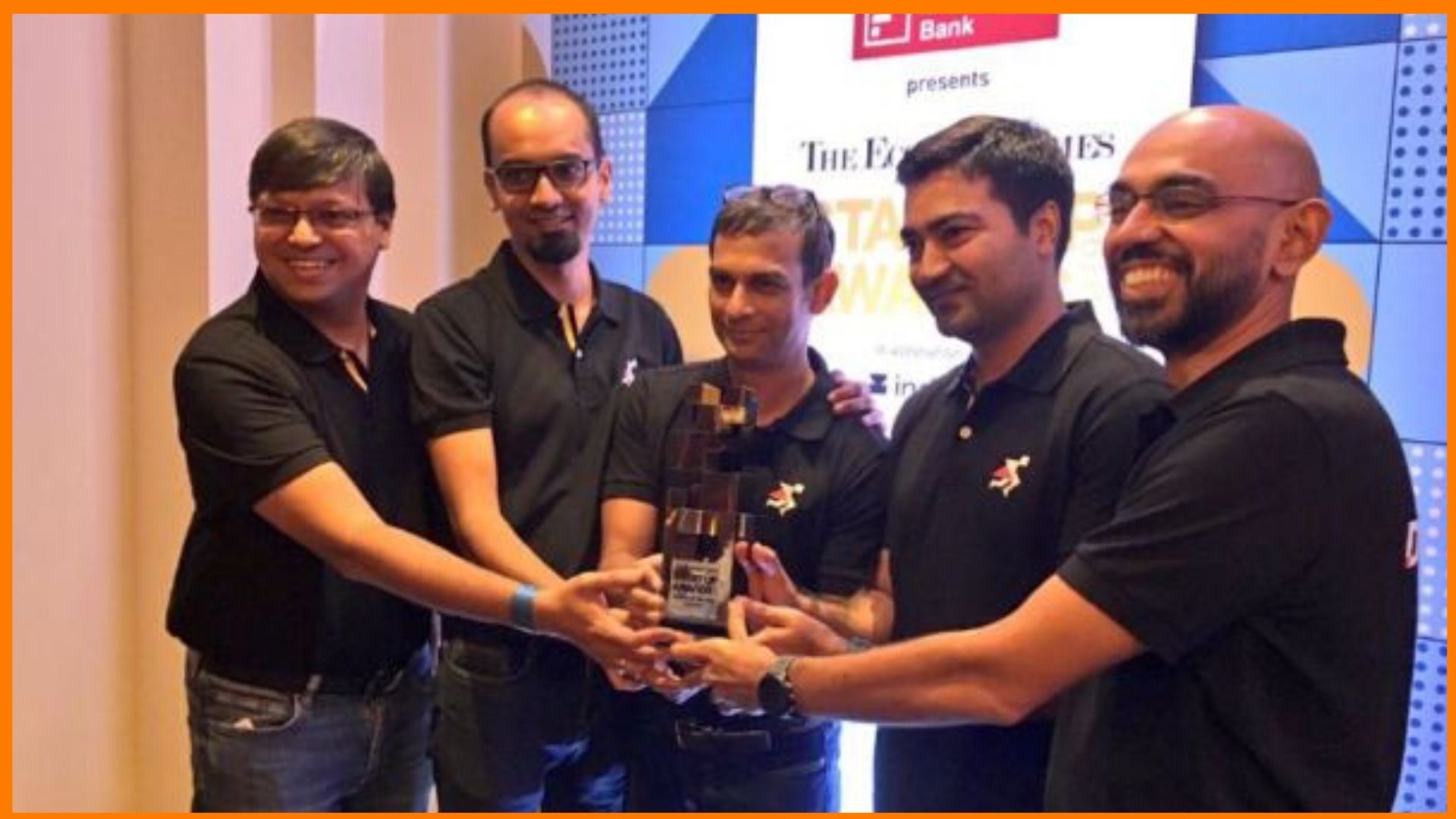Company Profile is an initiative by StartupTalky to publish verified information on different startups and organizations.
Though some of us still want to go for a first-hand experience of things, a significant number of people opt for used products instead of new ones, especially when it comes to the purchase of vehicles.
Our financial conditions have taken a tumble since the outbreak of the coronavirus pandemic, but new cars are getting costlier each day. Furthermore, as ironic as it is, the quality of these cars and their average lifespan are going down equally. Besides, for first-time buyers, going for used cars is always better as a decision. All of these reasons have boosted the sales of used cars.
Buying used cars in India is not at all pain, but all gain today! This is primarily because of the growing used car space in India, which is dominated by promising startups that are equipped with the technology of the age. Spinny is one such used car startup based in Gurgaon, Haryana that is disrupting the segment of used cars in India.
Read more about the brand Spinny, all the details of the used car industry, Logo and Tagline, Founders, Startup Story, Mission and Vision, history, Employees of the company, the Business and Revenue Model, Funding and Investors, Competitors, and more.
Spinny Company Details
| Startup Name | Spinny |
|---|---|
| Also Known As | Spinny Cars , myspinny, Spinny Assured Cars |
| Legal Name | ValueDrive Technologies Pvt. Ltd. |
| Headquarters | Gurgaon, Haryana, India |
| Industry | Automobile, Automotive |
| Founders | Niraj Singh, Ramanshu Mahaur, Mohit Gupta, and Ganesh Pawar |
| Founded | 2015 |
| Valuation | $1.67 Billion (as of December 2024) |
| Areas Served | India |
| Current CEO | Niraj Singh |
| Website | www.spinny.com |
About Spinny
Spinny – Industry
Spinny – Logo, and Tagline
Spinny – Founders and Team
Spinny – Startup Story
Spinny – Vision and Mission Statement
Spinny – Employees
Spinny – Business Model and Revenue Model
Spinny – Funding, and Investors
Spinny – Shareholders
Spinny – Acquisitions
Spinny – Growth and Revenues
Spinny – Financials
Spinny – LayOffs
Spinny – Competitors
Spinny – Challenges Faced
Spinny – Future Plans
Spinny – FAQs
About Spinny
Spinny is a reliable platform for used cars. Powered by cutting-edge technologies, Spinny promises simple, convenient, trustworthy transactions for all the users who look to buy and sell used cars.
The company’s platform contains a list of automobiles with full details that the buyers can check out. Furthermore, it also includes a test drive with a 5-day money-back assurance, thereby allowing the car owners to sell their vehicles and potential consumers to buy cars in an easy and transparent manner.
Sellers may arrange for an evaluation and accept an offer for their vehicle. Buyers may also go through the wide range of cars that Spinny offers online, choose a car, and book a test drive. Car owners may also put their vehicles for sale on the site and receive fast bids.
Spinny eliminates the danger of buying a used car and provides users with complete peace of mind. Its multi-step filtration means that the users always have the option of selecting from a pool of certified used automobiles of the greatest quality. When a customer buys a Spinny Assured automobile, he/she will be getting a used car that hasn’t been in an accident, hasn’t had its meter tampered with, has clean records, and has been properly inspected against a 200-point checklist.
Spinny – Industry
The used automobile market in India was valued at $561.13 million in 2023 and is predicted to grow to $738.57 million by 2032, with a CAGR of 3.10% between 2024 and 2032.
As opposed to the serious aftermath of the pandemic for the new car space, the impact of the COVID-19 pandemic on the industry was negligible. The industry is expected to significantly rise as more individuals desire independent mobility and new financial alternatives are incorporated into the used automobile market. Besides, after the pandemic onslaught, consumers have been forced to search for alternatives to new automobiles, and the used car sector has a lot of room for expansion in this area. Besides, manufacture and sale have also been hampered by the pandemic, which made the purchasers quickly resort to the used automobile market.
Spinny – Logo, and Tagline

Spinny has chosen red and black as its brand colors and the logo of the brand is crisp and catching, marked with the starting letter, “S”, of the brand.
Spinny’s tagline says, “Cars you will love to buy.”
Spinny – Founders and Team
Spinny was founded by Niraj Singh, Ramanshu Mahaur, Mohit Gupta, and Ganesh Pawar in 2015.

Niraj Singh
Spinny’s Founder and CEO is Niraj Singh. Niraj Singh has also worked as a Founding Partner at Outbox Ventures in the past.
Ramanshu Mahaur
Spinny and Karmabite were co-founded by Ramanshu Mahaur, who currently serves as the co-founder and CTO of the company. He was most recently a member of Adobe’s technical staff. Ramanshu graduated from the Indian Institute of Technology in Delhi with a Bachelor’s degree in Computer Science.
Mohit Gupta
Mohit Gupta is one of Spinny’s co-founders. Prior to joining Spinny, he worked at Flipkart from 2011 to 2014, holding several responsibilities.
Ganesh Pawar
Ganesh Pawar used to be Senior Manager of Business Development in Flipkart. He, then, co-founded Spinny. Now, he is building the food FMCG business at Udaan – an eCommerce-supply chain.

Spinny – Startup Story
India’s used car industry has been getting a lot of attention for quite some years now. It is mainly due to the better value proposition that used cars offer, that more and more Indians are looking to opt for old cars than the newer ones.
However, the lack of proper information that is inherent in the process of the sales of used automobiles, the absence of trustworthy middlemen, the complexity of navigating through the variety of alternatives when it comes to buyers, and finding the correct price of the vehicles for sellers have all been roadblocks in this path.
Besides, the procedure of buying a secondhand automobile is cumbersome and overly complicated. Independents provide a wide range of rates and services to entice people to buy automobiles of dubious quality. Choosing from a pool of mint and lemon autos, for example, has a high likelihood of bad selection for a beginner. All these provided a cradle for the birth of Spinny.
Niraj Singh, an IIT-Delhi alumni, serial entrepreneur, and investor founded Spinny in 2015. His aim to alleviate young Indians’ automobile ownership woes led to the formation of the firm. Niraj invested $500,000 of his personal money into the company. He is now backed by numerous venture capital groups and has raised close to Rs 418 crore. Niraj saw a need to provide a quality experience for individuals buying used automobiles and decided to build a simple and clear platform for customers to collect information and purchase a car.
Niraj Singh, Ramanshu Mahaur, Ganesh Pawar, and Mohit Gupta embarked on a mission to develop Spinny in order to sift out the quintessential problems of annoyance and skepticism and break down the arduous procedure into a one-click solution.
Buyers may rest assured knowing that all of the cars on offer have been Spinny Certified, which means they have passed a thorough assessment by our expert inspectors. This guarantees that the buyer is fully informed about the vehicle’s condition and is making an educated selection. Buyers of Spinny-certified cars also benefit from a warranty on cars acquired via Spinny.
In addition, the organisation handles all documentation, from registration to title transfers, as well as aiding purchasers with financing their new acquisition. Spinny has finally brought actual ease and a smoother transaction to the used automobile market for both buyers and sellers.
The Spinny business initially started in Delhi NCR in 2015 and has seen quite a growth since then.

Spinny – Vision and Mission Statement
Spinny’s mission is to make car ownership accessible, simple, and delightful.
“Our goal is for the country to trust our method, believe in and enjoy our cars”, states the company’s website.
“Only four percent of people are satisfied with their experience of buying a used car. We are providing trust, transparency, and simplicity. Our aim is that the buyer should be able to purchase the car with the same confidence that he or she shows while buying a new car,” added Niraj.
Spinny – Business Model and Revenue Model
Spinny, transitioned from a customer-to-customer model to a full-stack one in which it buys, refurbishes, and sells old cars. According to the creator and chief executive officer Niraj Singh, the website sells close to 1,500 automobiles every month and is increasing at a constant pace of 15-16% month over month. Spinny hopes to roughly triple its current volume by the end of the year 2021, according to Singh.
“There was a lot more capital available, but we wanted limited dilution in this round because our burn is very limited. We don’t have a runaway problem. It was just that we wanted to add an extra layer of security and the ability to experiment more,” Singh said.
Spinny has over 2 lakh customers and works with around 1000 people in over 11 cities, with ambitions to grow to 6 more by the end of the year, 2021. It now offers used cars in the INR 4-8 lakh range but intends to expand its services to include both cheaper and higher-priced vehicles.
In 2024, Spinny startup sells over 7,000 cars each month. Spinny’s online sales have also increased by 13% to reach 70% of the total sales.

Spinny – Funding, and Investors
Spinny raised around $513.5 million in funding over the 9 funding rounds it has witnessed to date. The last funding came in the form of an undisclosed funding round from Sachin Tendulkar after the huge Series E funding round on November 24, 2021, led by Tiger Global and Abu Dhabi Growth, which helped the company join the unicorn club of Indian companies. Currently valued at over $1.67B, as of December 2024, Spinny has already become the 4th Indian unicorn startup in the used car space and the 39th unicorn startup of India to achieve a unicorn valuation in 2021.
| Date | Round | Amount | Lead Investors |
|---|---|---|---|
| December 14, 2021 | Funding Round | – | Sachin Tendulkar |
| November 24, 2021 | Series E | $283M | Tiger Global, Abu Dhabi Growth Fund |
| Jul 9, 2021 | Series D | $103.30M | Tiger Global Management |
| Apr 7, 2021 | Series C | $65M | General Catalyst |
| Sep 27, 2019 | Series B | $43.7M | Fundamentum |
| May 21, 2019 | Series A | $13.2M | Accel, Elevation Capital |
| Nov 13, 2018 | Debt Financing | $4M | Blume Ventures |
| Jun 6, 2017 | Seed Round | $1M | Blume Ventures |
Spinny – Shareholders
Spinny shareholding as of November 2024 (source: Tracxn):
| Spinny Shareholders | Percentage |
|---|---|
| Niraj Singh | 9.7% |
| Mohit Gupta | 2.6% |
| Ramanshu Mahaur | 2.6% |
| Tiger Global Management | 14.1% |
| Elevation Capital | 12.5% |
| Accel | 13.1% |
| General Catalyst | 6.6% |
| ADFD | 5.6% |
| Fundamentum | 5.2% |
| Avenir Growth Capital | 5.1% |
| Blume Ventures | 5.3% |
| ESOP Pool | 6.7% |
| Others | 10.9% |

Spinny – Acquisitions
| Acquiree Name | About Acquiree | Date | Amount |
|---|---|---|---|
| Scouto | Scouto is an AI-powered connected car connectivity start-up. | Feb 10, 2022 | – |
| Truebil | Truebil is a team of young, highly motivated professionals who strive to help you buy and sell used cars in the simplest way possible. | Aug 6, 2020 | – |
| HopCar | HopCar is a provider of buy and sell car. Free Inspection. 15 days Sale Guarantee. | Jun 13, 2016 | – |
Spinny competes with its ESOP buyback for its current and former employees. The ESOP buyback plan announced on December 21, 2021, worth ($12 mn) INR 90 crores, was the first employee stock ownership plan that the company has seen to date.
Spinny – Growth and Revenues
- Top Car Preferences: Maruti Suzuki, Hyundai, BMW, and Mercedes-Benz were the most popular in 2024.
- Online Sales: 70% of purchases were made online in 2024.
- Spinny Parks: 50% of deliveries were from new Spinny Parks in 2024.
- Financing: 46% of buyers used Spinny Capital for financing in 2024.
- Metro Growth: Bangalore, Delhi NCR, and Hyderabad saw the highest sales in 2024.
Spinny – Financials
Spinny’s financial performance from FY20 to FY24 shows strong revenue growth but continued losses. Revenue grew from INR 17.7 crore in FY20 to INR 3,821.9 crore in FY24, while expenses also increased, leading to a loss of INR 587.5 crore in FY24.
| Particulars | FY24 | FY23 | FY22 | FY21 | FY20 |
|---|---|---|---|---|---|
| Revenue | INR 3,821.9 crore | INR 3,380.7 crore | INR 180 crore | INR 39.7 crore | INR 17.7 crore |
| Expenses | INR 4,409 crore | INR 4,196.1 crore | INR 670 crore | INR 150 crore | INR 93.9 crore |
| Profit/Loss | INR -587.5 crore | INR -815.5 crore | INR -490 crore | INR -110.3 crore | INR -76.2 crore |
Revenue grew by INR 441.2 crore (13.05%) from FY23 to FY24. Expenses increased by INR 212.9 crore (5.07%), reducing the loss by INR 228 crore.
Spinny Revenue:
Spinny’s revenue grew from INR 3,380.7 crore in FY23 to INR 3,821.9 crore in FY24, mainly due to higher revenue from operations.
| Revenue Source | FY24 | FY23 |
|---|---|---|
| Revenue from operations | INR 3,725 crore | INR 3,259.8 crore |
| Other income | INR 96.8 crore | INR 120.9 crore |
| Total Revenue | INR 3,821.9 crore | INR 3,380.7 crore |
Revenue from operations increased by INR 465.2 crore (14.27%), while other income fell by INR 24.1 crore (19.93%).
Spinny Expenses:
Expenses rose from INR 4,196.1 crore in FY23 to INR 4,409 crore in FY24, driven by higher purchases of stock-in-trade and finance costs.
| Expense Type | FY24 | FY23 |
|---|---|---|
| Cost of materials consumed | INR 90 crore | INR 143.8 crore |
| Purchases of stock-in-trade | INR 3,495.2 crore | INR 3,242.9 crore |
| Changes in inventories of finished goods, WIP | INR 8.4 crore | INR (217.5) crore |
| Employee benefit expense | INR 391.7 crore | INR 393.5 crore |
| Finance costs | INR 90.1 crore | INR 67.7 crore |
| Depreciation, depletion and amortisation expense | INR 62.1 crore | INR 77.9 crore |
| Other expenses | INR 271.5 crore | INR 487.8 crore |
| Total Expenses | INR 4,409 crore | INR 4,196.1 crore |
Purchases of stock-in-trade increased by INR 252.3 crore (7.78%), while other expenses decreased by INR 216.3 crore (44.34%).
Spinny Profit/Loss:
Spinny reduced its losses from INR 815.5 crore in FY23 to INR 587.5 crore in FY24 due to revenue growth and cost management.
| Profit Type | FY24 | FY23 |
|---|---|---|
| Gross profit/loss | INR 326.7 crore | INR 137.8 crore |
| Operating profit/loss | INR -497.4 crore | INR -747.6 crore |
| Net profit/(oss | INR -587.5 crore | INR -815.5 crore |
Gross profit increased by INR 188.9 crore (137.08%), and net loss reduced by INR 228 crore (27.96%).
Quick Summary:
- Revenue: Increased by 13.05% (INR 441.2 crore), driven by a rise in revenue from operations.
- Expenses: Increased by 5.07% (INR 212.9 crore), mainly due to higher stock-in-trade purchases and finance costs.
- Profit/Loss: Net loss was reduced by INR 228 crore (27.96%) due to improved gross profit and controlled expenses.


Spinny – LayOffs
Spinny, a used car startup, had laid off 5% of its workforce, or around 300 employees in August 2023, as the company merged the Truebil and Max platforms into the main platform. The reason for the layoff is to have cleaner and more focused execution going forward and to offer everything to customers on the main platform.
The company’s official statement on this “We have witnessed a sharp uptick in demand for reliable, budget-friendly cars as most people have resumed work from the office. By splitting our inventory of cars across different brand platforms, we were sometimes unable to offer enough options to such customers. With this consolidation, we should be able to meet the needs of these customers well.
Spinny is providing affected employees with a three-month severance package, faster ESOP vesting, and the option to maintain their assets as a show of support.
Spinny – Competitors
- CarDekho
- Droom
- CARS24
- CarTrade
- CarWale
- Creative Webmedia Pvt Ltd
- Carnation
- CheckGaadi
- Chehaoduo
- CapCar
- Shift Technologies
- and Carlypso, are the top ten rivals in Spinny’s competitive set.

Spinny – Challenges Faced
The trust issue is one of the major worries consumers have when buying used automobiles, according to Niraj Singh, co-founder, and CEO of Spinny. The startup’s rigorous and transparent inspection of the car, buying it from the owner, and then selling it to clients, addresses those concerns, Singh adds.
The business claims it is removing conventional intermediaries from the mix, making used car purchases more reasonable and reliable for clients. If a consumer is unhappy with the automobile they bought from Spinny, they will receive a complete refund.
Spinny started out as a used automobile marketplace, but according to Singh, the company has grown to become a full-stack platform. The pandemic harmed Spinny’s company for a few months, according to Singh, but the startup has now restored its pre-pandemic growth rates.
According to Singh, the outbreak of the deadly virus made many people wary about taking an Uber or Ola trip, prompting them to look into purchasing their own vehicles. Spinny’s CAC was also dramatically lowered, he claimed.
Though Spinny is an evolving startup that has already achieved a unicorn valuation, it is facing tough competition from its rivals in the used car space. Therefore, surviving in one such landscape with cutthroat competition is itself a challenge that Spinny is battling against.
Spinny – Future Plans
Spinny doesn’t want to be just another participant in the market in the coming year; instead, it wants to be the catalyst for changing people’s perceptions about used vehicle purchases. According to Niraj, the goal is to create a seamless shopping experience that is consistent with openness, quality, responsibility, and trustworthiness.
Spinny – FAQs
What is Spinny?
Spinny is an Indian used car buying and selling platform founded in 2015. It provides a seamless, transparent, and trusted process for purchasing and selling pre-owned cars.
What does Spinny do?
Spinny is a used car trading platform that aims to deliver affordable used cars via an easy and transparent process for everyone.
Who founded Spinny?
Spinny was founded by Niraj Singh, Ramanshu Mahaur, Mohit Gupta, and Ganesh Pawar.
Spinny founded in which year?
Spinny was launched in 2015.
Which companies do Spinny compete with?
CarDekho, Droom, CARS24, CarTrade, CarWale, Creative Webmedia Pvt Ltd, Carnation, CheckGaadi, Chehaoduo, CapCar, Shift Technologies, and Carlypso, are the top ten rivals in Spinny’s competitive set.
What is Spinny business model?
Spinny operates on a direct-to-customer (D2C) model for buying and selling used cars. It owns and inspects the cars, ensuring quality before selling them to customers through its online platform and physical hubs. This eliminates middlemen, offering competitive prices and a better customer experience. The company earns revenue from car sales, financing services, and value-added products like insurance and warranties.
Who is Spinny CTO?
Ramanshu Mahaur is the CTO of Spinny company.














































































